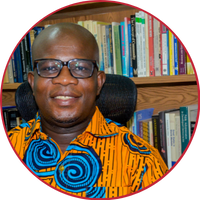
Post-Colonialisms Today is a research and advocacy project recovering insights from early post-independence African governments, and mobilizing them through a feminist lens to address contemporary challenges. PCT was born over four intensive meetings in Addis Ababa, Rabat, New York and Santiago, between June 2017 and June 2018, in which a community of prominent African activist-intellectuals convened to grapple with politically-driven narratives about the first two decades of independence that have allowed neoliberalism to cement its hegemony. Since then, the project has grown to include a Working Group, Advisors, and researchers from across the continent. It is housed in Regions Refocus, which serves as the secretariat.
Our work includes journal articles, media campaigns, and virtual advocacy events grounded in a three-year collective research process. The research phase was initiated with an open call for proposals in 2018, through which eight researchers were selected and supported in undertaking case studies on post-independence issues ranging from development planning to pan-African feminist organizing. Encompassing editorial meetings at the CODESRIA headquarters in Dakar and then in Accra, this culminated in Lessons to Africa from Africa: Reclaiming Early Post-independence Progressive Policies. The advocacy phase of the project began in 2019 with an intergenerational dialogue in Dar es Salaam, leading to a series of virtual events and a popular media campaign with partners like Africa is a Country and The Elephant. Following the launch of our publication in 2022, the PCT community will continue to generate and popularlise post-independence insights, and mobilise them as a framework for progressive and feminist policy advocacy.
We welcome opportunities for collaboration at postcolonialismstoday@regionsrefocus.org























